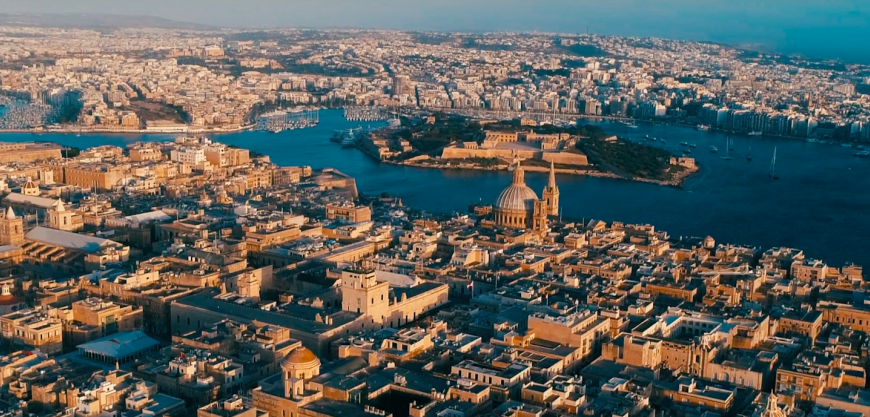Updated: 27th August, 2024
Obtaining a second residency is an appealing option for many, offering numerous benefits. The most common reason people seek a second residency is the freedom to travel and live in various countries without the hassle of securing visas or establishing residency at each destination.
However, acquiring second residency is a complex process that requires careful consideration. Before applying, it's crucial to fully understand the requirements and benefits involved.
Selecting a new country to call home can be straightforward if you navigate the process through the appropriate channels. With various residency programmes available to foreign nationals, it's important to choose the one that best suits your needs.
Suggested Reading: Why Acquire Second Residency?
Ten Things to Consider When Applying for a Second Residency
1. Quality of Life
Different second residency programs offer varying living standards, making it essential to research thoroughly before deciding. Consider what the country you're interested in has to offer. Some countries may have higher crime rates or less developed healthcare systems, while others might be more expensive to live in or have limited job opportunities.
Choose a country that ensures your safety, offers quality education, and provides top-class healthcare. It's important to settle in a place that meets all these criteria, ensuring you have a reliable safety net.
Suggested Reading: What is it like living in Malta?
2. The Country’s Reputation
When you apply for a second residency, you want to ensure that the country you are applying to is reputable and has excellent financial stability, political system, and legal framework. Therefore, understanding the country’s residency programme will give you an idea of your residency journey. Essentially, before taking the first step in your application, ensure that the residency programme has a good reputation and a solid foundation for creating a better society.
- Economic and Political Stability of Malta
- Navigating Malta’s Legal and Regulatory Landscape: A Guide for Entrepreneurs
3. Travel Privileges
Most second residency programmes offer travel privileges and grant easy access to other countries. While this can be a great perk for those seeking international work opportunities and the chance to travel worldwide, it's important to consider whether the programme provides sufficient time for travel. In essence, some programmes may have limited travel permits or inconvenient visa policies, so it's crucial to explore your options before making a commitment.
Suggested Reading: 187 Visa-Free Countries with a Malta Passport
4. Physical Presence Requirement
When you apply for a second residency, some programmes may require you to spend a certain number of days in the country yearly to maintain your status. If you are planning on using your second residency as a way to live and work remotely, this may pose some challenges. Therefore, thoroughly check the physical presence requirement of the second residency programme before applying to see if it is feasible for you.
5. Investment Requirement
If efficiency is a priority for you, it's essential to choose a swift residency programme. Some programmes process applications quickly, while others can take up to eighteen (18) months. Even though you may be legally in the residency country during this waiting period, residency is not granted until your application is approved and the permit is issued. Ensure you select a residency programme that respects your time and minimizes delays.

7. Banking and Renting Considerations
There are several important questions to consider:
- How easily can a foreign national open a bank account?
- How straightforward is it to rent out your home while you are not residing there?
In some countries, you may be required to open a bank account and make a cash deposit before applying for residency. However, the banking process can be especially challenging in that particular country. While these matters may seem like details to address later, it's worthwhile to research potential complications that could arise in the long run.
8. Citizenship For The Near Future
Citizenship is the ultimate goal of obtaining second residency. Most countries grant citizenship after a minimum of five (5) years of residence, though requirements can vary significantly. As a citizen, you gain all associated rights and privileges, including the right to vote and run for office. If you intend to pursue second residency for citizenship purposes, it's essential to be well-informed about the naturalization process and its requirements.
9. Your Compatibility with the Country
It's essential to evaluate your compatibility with the country you plan to make your second home. Researching the local culture and customs can help determine if the country is a good fit for you. Additionally, consider factors such as the climate, cuisine, religion, and languages spoken. Essentially, ensuring that you will be comfortable in your new home is crucial before making a move. Create a list of pros and cons to see how they compare.
Suggested Reading: Discover Malta - The Best Destination for Second Citizenship
10. Legally Qualified Immigration Experts
Access to qualified immigration experts can be invaluable when navigating the complex processes of obtaining second residency. These professionals offer essential guidance and assistance, helping you avoid costly mistakes. Collaborating with immigration experts who are knowledgeable about the specifics of your chosen residency programme can significantly impact your success.
The Malta Permanent Residence Programme (MPRP)
Now that you are aware of the things you should consider about second residency, there must be a country that comes to mind.
That country might be Malta. Malta offers the Malta Permanent Residence Programme (MPRP), a residency programme that stands out among all the available residency programmes globally. Malta welcomes non-EU/EEA/Swiss nationals dreaming of island life.
Located in the Mediterranean Sea, Malta is an archipelago in Southern Europe. It is a member of the European Union with a constitution that safeguards fundamental human rights.
Is Malta the one for you? Download our guide and learn everything about the MPRP.
Applying for Second Residency
In conclusion, applying for a second residency can be both exciting and nerve-wracking, as it involves relocating to a new country. The residency process can be complex, and it's important to understand all your options.
At Endevio, our immigration experts and residency specialists are legally qualified in various jurisdictions across Europe and beyond. We provide tailored residency advice to foreign nationals seeking guidance in their second residency journey.
Recent Insights
- A New Era for Caribbean Passports: Navigating Changes and Seeking Schengen Access
- U.S. Gold Card vs. Malta Residency & Citizenship: Which is the Best Investment?
- Can You Lose Your Second Citizenship? Understanding the Risks and Legalities
- Top European Real Estate Markets for Global Investors in 2025
- Building a New Life in Malta: A Guide for UK Non-Doms Relocating to Malta

